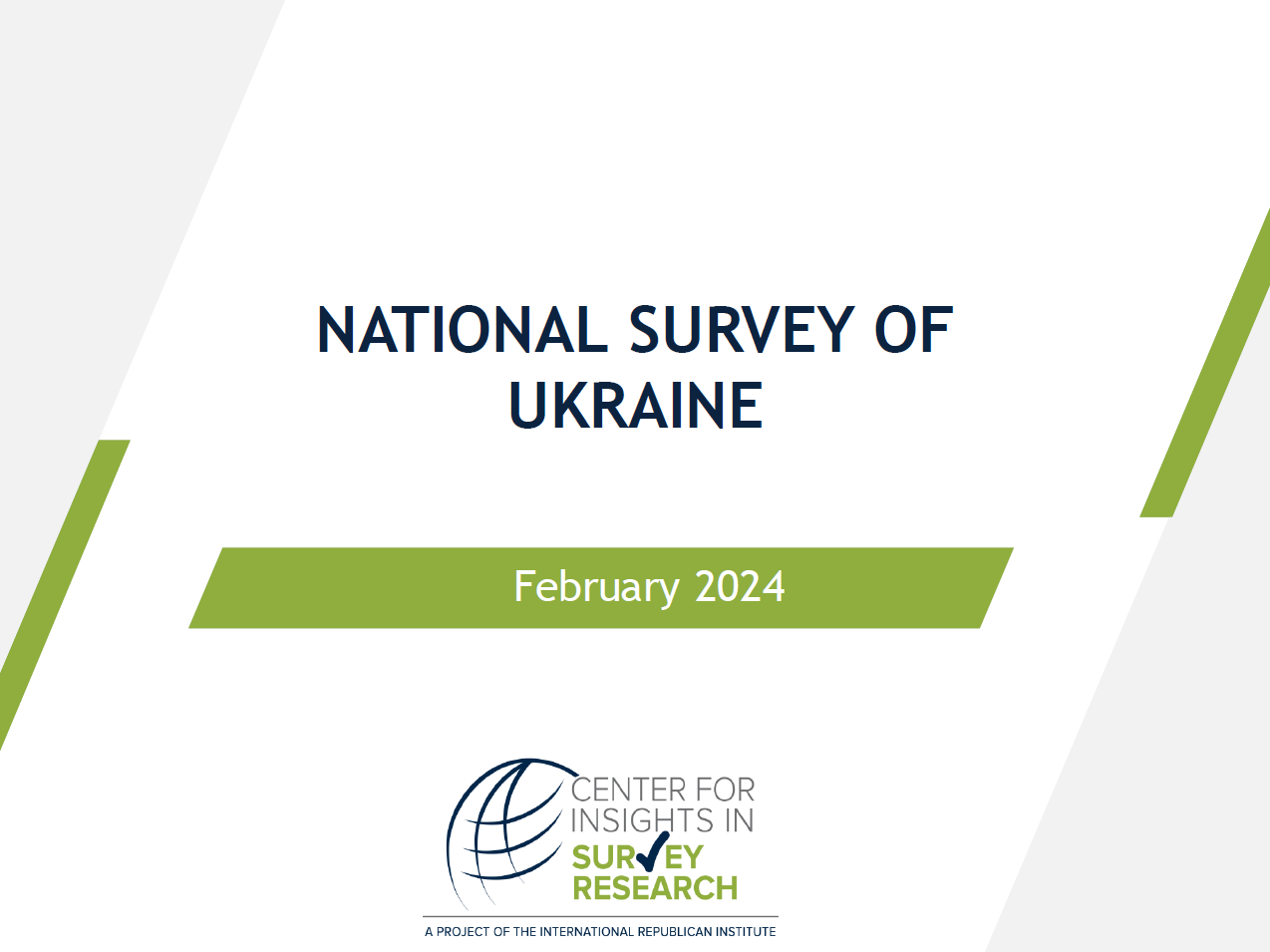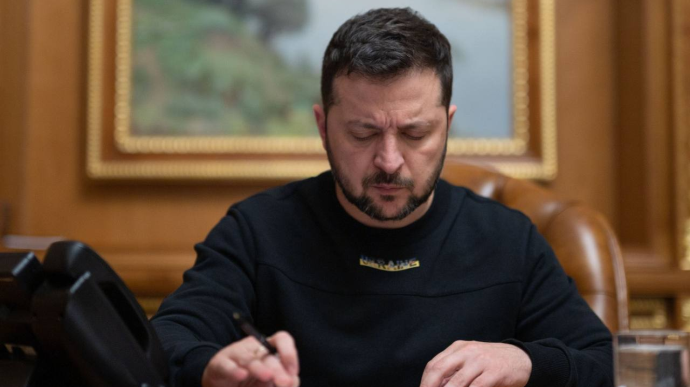Ukrainian optimism is high but waning: 88% still believe in victory over Russia, down from 94% in 2023
Survey reveals that Ukrainians consider corruption among their state authorities even a bigger threat to Ukraine’s development than Russia’s military aggression.

According to a recent survey, strong majorities of Ukrainians believe that their country will defeat Russia in the ongoing war and are optimistic about the future.
The survey, conducted by the Sociological Group “Rating” on behalf of the Center for Insights in Survey Research of the International Republican Institute (IRI), reveals what Ukrainians think about the war, mobilization, elections, threats to the country, government activities, and support from other countries.
The views of Ukrainians have remained unchanged over two years of war: they stay predominantly confident in their country’s victory and choose alliances with the West rather than Russia and Belarus, although there is a slight drop in NATO/EU approval since the last polling period.
What Ukrainians think about the war
88% of respondents believe Ukraine will win the war with Russia, and 80% said the future of their country looks “rather promising,” according to the IRI poll. However, these percentages dropped from the same survey conducted in April 2022, when 97% believed in the victory and 95% of Ukrainians saw the future of Ukraine as rather promising.

Nevertheless, the survey results demonstrate the unwavering faith of the Ukrainian people in their ultimate triumph over Russia, even after enduring more than two years of the full-scale war, said Stephen Nix, the Senior Director for Eurasia at IRI. He also emphasized that “Putin cannot dent their strong sense of morale,” IRI reports.

37% of Ukrainians think the war will end in 1-2 years, and 26% believe it will end in less than a year. When asked how far in the future they can make plans, the two highest percentages in the answers were divided between planning for less than a month (24%) and planning for more than a year (23%). 15% cannot make any plans at all.
45% believe that Ukraine will maintain all territories within its internationally recognized borders defined in 1991, which means returning Crimea and parts of Donetsk, Luhansk, Kherson, and Zaporizhzhia oblasts, which are currently occupied by Russia.

What Ukrainians think about the government
Notably, a greater percentage of Ukrainians (51%) believe that the biggest threat to Ukraine’s development is corruption among authorities than Russia’s military aggression (46%).

The trust in President Volodymyr Zelenskyy has dropped sharply, from 74% strongly approving and 20% somewhat approving him in April 2022, to now 22 % strongly approving and 41% somewhat approving him in 2024. Despite this drop, Zelenskyy maintains an overall approval rating of 63%.
Ukrainians also approve less of local authorities and the Parliament of Ukraine compared to 2022. The activities of the Parliament of Ukraine get the most disapproval in 2024, while 40% strongly disapprove, and 37% somewhat disapprove.
Despite this relatively low confidence in the government, the poll has shown that half of the Ukrainians (49%) oppose the idea of electing a new president during the ongoing war, which is less than in the 2023 poll results, when 62 % prioritized elections only after the end of war. 44% of Ukrainians also strongly oppose re-electing the Verkhovna Rada, which is the Parliament of Ukraine.

What Ukrainians think about the Armed Forces
The institution that Ukrainians trust the most are the Armed Forces of Ukraine, with 77% strongly approving their activities. This tendency dropped slightly from 2022, when 92% strongly approved. 76% have donated money to the Armed Forces of Ukraine during the last three months.

As the war continues and the news about a potential Russian offensive in late spring-summer of 2024 becomes more common, the Ukrainian government is eyeing measures to increase mobilization, which sparks heated discussions in Ukraine. The poll shows that respondents believe that people don’t want to join the Armed Forces of Ukraine because of:
- Fear of death, disability, captivity, and uncertainty (42%).
- Unfair mobilization, meaning a perceived disproportionately higher mobilization among social groups with lower status and income (22%).
- Insufficient equipment, lack of ammunition, and weapons (22%).
- Distrust of the government (18%).
The respondents also identified several key measures the Ukrainian government could implement to boost recruitment for the Armed Forces of Ukraine. The most significant incentives included:
- enhancing the army’s material support, such as providing better weapons, clothing, and food (31%).
- ensuring fair mobilization across all social groups, regardless of their status or income (22%).
- intensifying efforts to combat corruption (20%).
- offering higher and more consistent salaries for military personnel (17%).
What Ukrainians think about NATO and EU
The poll also demonstrates Ukrainians’ desire to align with the West, with 77% supporting joining the EU, as opposed to 2% preferring a customs union with Russia, Belarus, and Kazakhstan. As Ukraine started the negotiations to join the EU on 14 December 2023, the question of how long it will take until Ukraine becomes a member of the EU arises: 32% think it will take 3 to 5 years, 26% – less than 3 years, and 15% – more than 10 years.
“Our data is very clear, Ukrainians believe that closer ties with the West give them a better chance of achieving lasting peace and prosperity,” Nix stated, according to IRI.
IRI’s data shows that an equal percentage (77%) would vote in favor of Ukraine joining NATO if a referendum were held today. However, most (39%) Ukrainians still consider the goal of recapturing all lands occupied by Russia to be more crucial than NATO or EU membership.

When asked which countries and international organizations provided the most support to Ukraine in the context of Russian military aggression, Ukrainians named the US (68%), Germany (45%), Great Britain (39%), and Poland (38%) as their top four answers.
The survey was conducted from 17-21 February 2024, through computer-assisted telephone interviews (CATI) based on a random sample of mobile telephone numbers. It included 2,000 Ukrainians aged 18 and older, excluding those in the occupied territories of Crimea and Donbas and those not currently in Ukraine. The study was funded by the United States Agency for International Development (USAID).
Related:



